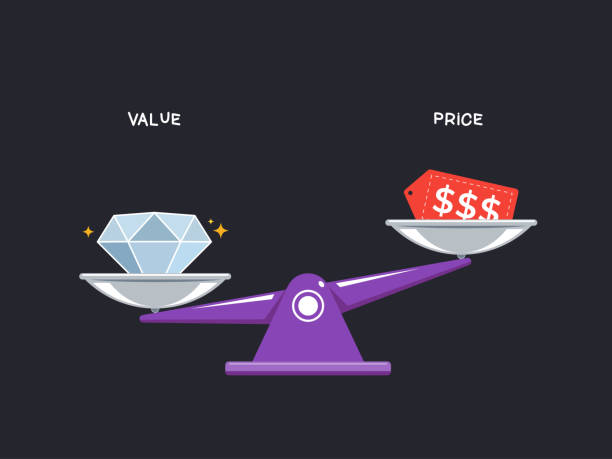1. What is Health Insurance and Why is it Necessary?
Health insurance is a financial tool that covers medical expenses. It protects you from the costs of unexpected health issues. In today’s world, where healthcare costs are very high, health insurance has become a necessity, not a luxury. Everyone should secure their health and that of their family. This coverage is especially useful when you or a family member faces an illness or accident. Medical bills can sometimes be so high that one has to use up their savings. Health insurance reduces this stress and keeps you financially stable.
Another benefit is that it allows you to afford preventive care, such as annual check-ups and vaccinations. This is important because the basic purpose of health insurance is to keep you healthy, not just treat illnesses, but also to help prevent them. Without health insurance, you would have to pay for everything out of pocket, which can be very expensive.
2. Different Types of Health Insurance Plans

Health insurance plans come in various types, each with its own advantages and disadvantages. A common type is “individual health insurance,” which covers you or your family members. Then there’s the “family floater plan,” which covers the entire family under a single policy. This type of plan is usually cheaper but divides the coverage among everyone. If one person needs extensive medical care, the coverage for others may decrease.
Group health insurance is another option, often offered by companies to their employees. This plan is relatively inexpensive and provides many facilities to employees, though it is not flexible for individual needs. Senior citizen health insurance is a special plan designed for the elderly. It’s important to choose a health insurance plan that meets your needs.
3. How to Choose a Health Insurance Plan?
The first step in choosing the best health insurance plan is understanding your needs. Start by assessing the health conditions of your family. If any family member has a chronic illness like diabetes or heart disease, you’ll need a plan that provides good coverage for such conditions. Next, consider your financial situation. The premium, which you pay monthly or annually, should fit within your budget.
It’s also important to check the policy’s coverage limits. Make sure it covers hospitalization, surgeries, doctor visits, and medication. Many people make the mistake of choosing plans with low premiums but inadequate coverage, which doesn’t meet their needs in the long run. After doing your research, select a plan that can easily cover the medical needs of you and your family.
4. Balancing Premium and Coverage

When choosing health insurance, many people focus primarily on the premium, but this can be a mistake. A low-premium plan is only beneficial if its coverage meets your needs. If you select a plan with low premiums but insufficient coverage, you may end up paying a lot out of pocket in an emergency.
It’s important to balance the premium and coverage. Every plan has deductibles, co-pays, and coverage limits that you should understand. A deductible is the amount you pay out of pocket before insurance covers the rest. A high-deductible plan has a lower premium but requires more out-of-pocket expenses. Balancing premium and coverage requires analyzing your financial situation, medical needs, and potential future risks.
5. Importance of Network Hospitals
Another important factor when choosing a health insurance plan is checking the network hospitals. Many insurance companies have specific hospitals within their network where you can avail cashless treatment. This means you don’t have to pay upfront, and the hospital bills are sent directly to the insurance company. If you don’t check for network hospitals in your plan, you may face difficulties during an emergency.
It’s also crucial to check the geographic coverage of these network hospitals, especially if you travel frequently. Make sure there are network hospitals near your city or travel destination. Choosing a plan with accessible hospitals where you can get immediate treatment is important for reducing stress during medical emergencies.
6. Waiting Period and Pre-Existing Conditions

Health insurance plans usually have a waiting period for certain treatments and diseases, meaning they won’t be covered in the first year of the policy. Many people make the mistake of ignoring this. If you or your family members have a pre-existing condition, such as diabetes or high blood pressure, check how long the waiting period is in the policy.
Treatment for pre-existing conditions often requires a waiting period of two to four years. You’ll need to assess whether you can afford medical care during this time. It’s also essential to understand how the waiting period applies and which conditions are covered during this time. If you want quicker coverage, choose a plan with a shorter waiting period for pre-existing conditions.
7. What to Look for in Maternity Benefits?
If you are planning to start a family, it’s important to consider maternity benefits in your health insurance. Maternity benefits are essential, but many plans also apply a waiting period for this coverage. Therefore, if you need maternity coverage, it’s better to get the plan early to complete the waiting period.
Maternity benefits cover expenses related to delivery, newborn care, and other related medical expenses. Some plans also offer additional benefits such as vaccinations and initial healthcare for newborns. If you expect to need these services in the future, choose a health insurance plan that provides comprehensive and easy-to-access maternity coverage.
8. How to Smooth the Claim Process?
After getting health insurance, understanding the claim process is very important. When you file a claim, you need to provide certain documents and proof. Having prior knowledge of the claim process can help you avoid delays during an emergency. Nowadays, insurance companies offer online claim filing services, which can save you time.
Each insurance company has its own claim process, but the common steps include filling out a claim form, submitting necessary documents, and providing proof related to hospital treatment. Some plans offer cashless claim facilities for network hospitals, relieving you from paying out of pocket. Understanding and preparing for the claim process can help you avoid many difficulties.
9. What is the Benefit of Riders and Add-Ons?
Riders or add-ons in health insurance plans are additional benefits that you can attach to your policy. The advantage of riders is that they allow you to customize your policy according to your needs. Common riders include critical illness cover, personal accident cover, and hospital daily cash benefits. Choosing these add-ons can make your health insurance policy more comprehensive.
Critical illness cover helps you financially if you need treatment for serious diseases like cancer or heart disease. Personal accident cover provides financial assistance for treating accidental injuries. The hospital daily cash benefit covers daily expenses if you are hospitalized for an extended period. Understanding and selecting riders can give you extra coverage.
10. Benefits of Health Insurance Plan Renewal
Renewing health insurance plans often provides additional benefits, as insurance companies reward you for renewing the policy consistently. One common benefit is a no-claim bonus. If you don’t make any claims throughout the year, you get a no-claim bonus that increases your insured sum without raising the premium. This type of benefit enhances your coverage in the long term.
Another benefit of renewal is that you can modify the policy. If your needs change or a new family member is added, you can make changes to your policy during renewal. This flexibility helps you with better planning and management. Renewing your policy on time and taking advantage of renewal benefits can offer you the best coverage options.
11. Tax Benefits and Health Insurance
Health insurance offers another advantage in the form of tax savings. Under Section 80D of the Income Tax Act, you get tax deductions on health insurance premiums. You can claim a tax deduction annually on the policies for yourself and your family, up to a specific amount. If you also purchase health insurance for your parents, you can get additional tax deductions.
These tax benefits not only provide financial relief but also incentivize getting health insurance. Always include your health insurance premium in your annual tax return to take full advantage of these benefits. Many people miss out on this, so make sure to include health insurance in your tax planning.



